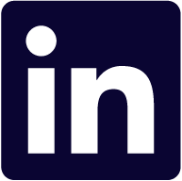Fifteen good questions to ask in a job interview

You are already well prepared when you know what questions you can expect and when you have thought about the question why you would want to work at this organization specific, but it is equally important to prepare questions to ask in a job interview yourself.
Asking no questions can appear disinterested or passive, and only asking “How long is the trial period?” or “How many vacation days do I get?” isn’t any good either. Recruiters prefer people who visualize themselves performing well in the position and who don’t immediately focus on their remuneration package.
By asking the right questions during the interview, you’ll be able to better decide whether the job and the organisation are the right opportunity for you. Asking questions is also vital to show interest in the position and to convice the interviewer that you’ll do a good job.
You have to set the goal of seeing job interviews more as a conversation than an interrogation. You can achieve this by showing up to the appointment with prepared and varied questions. Don’t be afraid to bring a pen and notepad to make notes.
Fifteen questions to ask in a job interview
Here, you’ll find some questions to ask in an interview, divided into six categories:
Your role
1. Is this role new? If not, how did it come to exist?
The answer to this question will show if the role was created to integrate new methods and technology. The question shows that you like to keep up with progress and have a positive attitude towards change. You can use the conversation following this question to show your knowledge of current trends and developments. With the answer, you’ll also gain insight into how much freedom the employer gives their employees in forming their own role, which can be a good indicator of a strong culture of trust.
2. Is there room for career development?
This is another classic questions that shows your career ambitions and that you want to move up. It’ll also uncover something about how talent is stimulated and promoted in the organisation.
3. Can you tell me more about my predecessor?
This is a tactical way to pinpoint which skills and experience are necessary for the role. You can use the evaluation of your predecessor to estimate what you need to elevate the role to the next level.
4. What does a typical working day look like?
This is the best question to envision yourself in the role; then, you’ll be able to decide whether the role is something for you or not.
5. Can you tell me more about the team?
Where possible, research your colleagues before the job interview. If that’s not possible, try to get to know as much about them as possible during the interview. Getting along with your colleagues is vital to gain satisfaction from your work. 70% of employees says that having friends at work is the most important part of a happy working life.
Your team
6. Who are the most important stakeholders?
An other question to ask in a job interview is “Who are the most important stakeholders?”. It’s hard to determine the full scope of your role just from the job overview in the ad. Use the job interview to determine with which departments you’ll be working the most. Then you can decide if your skills are or aren’t fit for the role.
7. How does the team fit in the overall company structure?
This question shows your interest to work as a team because you want to know how you’ll fit in the organisation and contribute to its long-term success.
8. What costitutes sucess for the team and the role?
This is a good way to find out the organisation’s priorities, which you can then compare to your own. It’ll also help to understand what the company expects of its employees, which will lead to a further conversation about measuring individual performance.
Your conversation partner
9. What is your background?
Understanding the interviewer’s background and why they were selected to work for the company can help you in forming your own answers about your added value to the role. This question is also useful for finding similarities with your conversation partner – which is the key to success in your job interview.
10. From your perspective, what’s it like to work here?
This is one of the seemingly innocent questions that can tell you a lot about the company’s work culture. It can also be a way to express your wish to work in a positive environment, and that you’re someone who likes to reach their full potential. A pleasant work environment genuinely has a remarkable effect on the organisation’s overall productivity and success, as explained in this Hays Journal article Cool workplaces – do they deliver benefits?
The organisation
11. What are the main challenges and opportunities for the company?
If you know that the company has recently launched a new product or service, you could work this into the conversation by asking how the new product was received – which shows you’ve done your research. The logical next step is to use this information to show that you’re fit to help them solve their challenges.
12. How long do employees usually stay with the company?
It’s a good idea to learn how long employees stay with their employer on average. This can give you insight into how they’re treated.
Learning and development
13. How often will my performance be evaluated?
This a profound question which shows your focus on building a career. You don’t want to get stuck. You want to know that the evaluation of individual performances is approached in a structured, proactive way and that you won’t be forgotten. It also shows that you’re receptive to feedback.
14. Which training options are available?
This is a common question but an important one, not just for your own good but to show that you’re interested in acquiring new skills which can be useful to you and to the organisation. Access to plenty of training tools is vital to your professional growth, regardless of your current phase in your career.
Follow-up steps
15. What is the next step?
Don’t forget to ask about what’s next! That way, you’ll be able to prepare for the next phase of the application process. This could be a second job interview, a salary negotiation or perhaps a contract proposal.
In short
During a job interview, it’s very important that the interviewer is not constantly talking. Moreover, if you both have an equal share, it’ll be beneficial to the both of you – interviewing is hard work, but an interesting conversation is enjoyable. This list with questions to ask in a job interview could help you accomplish this.
You have to ensure that you only ask questions when relevant and useful, instead of coming across as overconfident. And of course, it’s vital to actively listen to the answers. Ask the right questions, and you’ll have a good chance of making it to the next step in the process. And even more important, you’ll know whether you want to or not.





